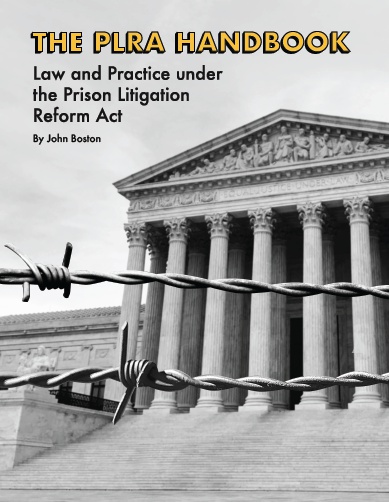Arizona prisons settle censorship case brought by Prison Legal News
Christina Avery, Arizona Republic
Published 6:01 a.m. MT June 19, 2024 - Updated 6:01 a.m. MT June 19, 2024
The Arizona Department of Corrections, Rehabilitation and Reentry has agreed to pay nearly $3 million to settle a federal civil lawsuit brought by the publisher of Prison Legal News stemming from censorship by the state prison system.
The Corrections Department will pay $2,650,000 to cover attorneys fees and other litigation-related expenses for the Human Rights Defense Center, the center announced Tuesday. It was the largest attorneys fee recovery in a prison censorship case in U.S. history, the center said in a news release.
According to the center, Arizona prisoners routinely received editions of Prison Legal News, a 72-page monthly publication covering nationwide prison-related news and litigation, until 2014, when the Corrections Department began censoring editions.
The Corrections Department claimed the publication contained sexually explicit material, violating the department's prison mail policy. The censored editions of Prison Legal News reported cases in which prisoners had been sexually assaulted or harassed by prison staff, and the department failed to notify the center of the censorship or offer the chance to appeal, the news release said.
"It is outrageous that we had to file a lawsuit because Arizona prison officials would censor our award-winning magazine for quoting federal judges' written opinions," said Paul Wright, the Human Rights Defense Center's executive director. "But even more outrageous is how vigorously they fought this case for nine years to prevent prisoners from learning what their rights are to be free from sexual assaults by staff."
Before pursuing litigation, the center sent multiple letters to the Corrections Department seeking to resolve the matter, but those letters were ignored, the center's statement said. The center filed a lawsuit in 2015, alleging the Corrections Department's mail policy blocking sexually explicit material was unconstitutional, and its failure to notify the center about the censorship violated the group's due process rights.
The federal courts determined that the Corrections Department violated the center's due process rights, and a portion of the prison mail policy that permitted mailroom staff to censor materials based on their potential to cause sexual arousal was stuck down.
As a result of the lawsuit, all subscribers received the previously censored issues of Prison Legal News.
The Corrections Department did not respond to The Republic's request for comment Tuesday.
Reach the reporter at christina.avery@gannett.com.







